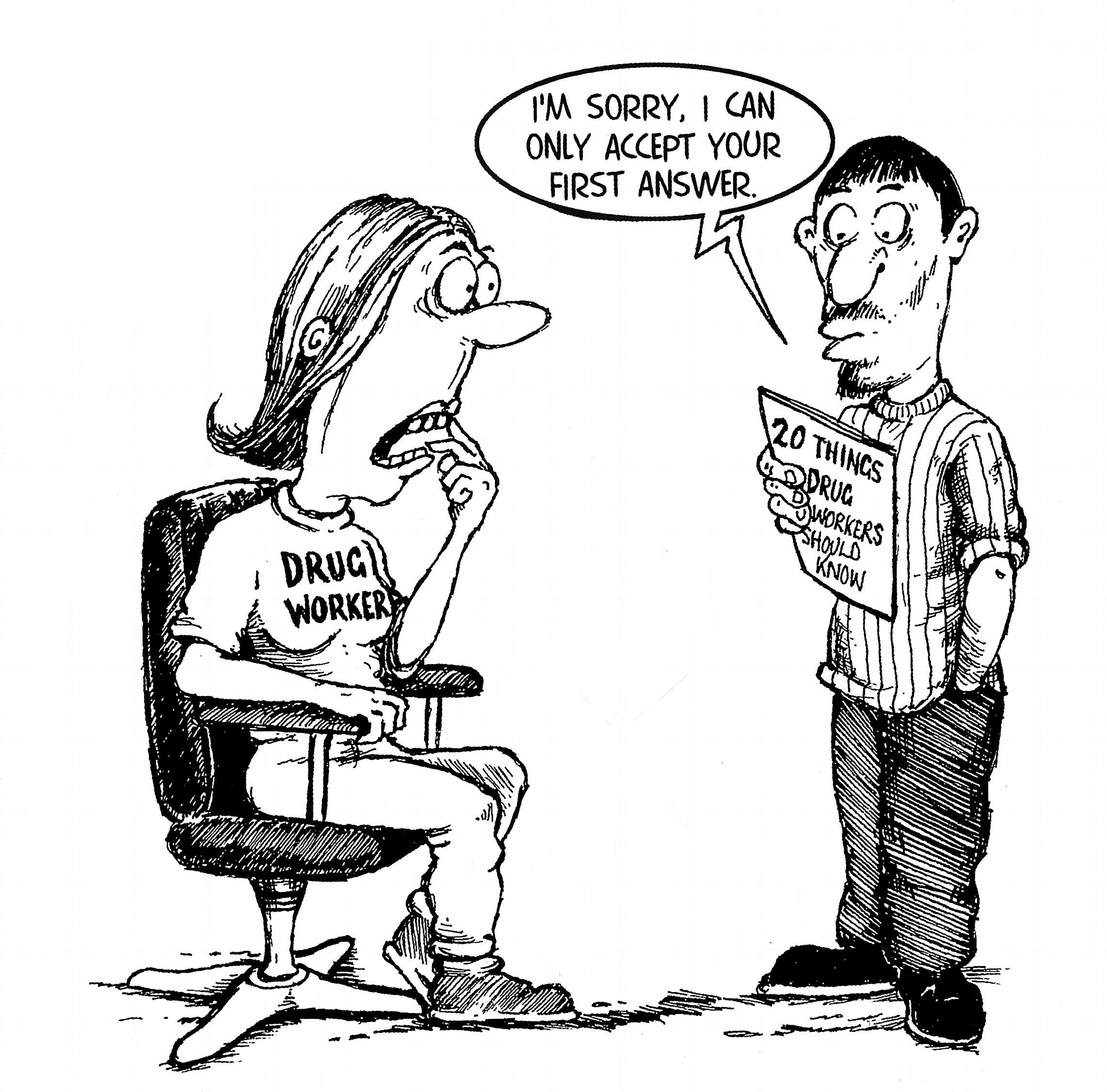
1 minute read
What to Do Before You Approach a Treatment Service
Coerced Treatment
There has always been some element of coercion with regard to treatment. Very few people enter treatment because they just rationally decide that their drug use has become a problem and now it’s time to quit. Sometimes, this coercion takes the form of friends or family being upset with you, and so you enter treatment to try and keep them happy. Or it might be something that you do to avoid losing your job, or getting expelled from school. This type of coercion tends to be informal in nature. More recently though, the Government has introduced something called a Drug Treatment and Testing Order (DTTO) which has gone some way towards formalizing this coercion. Under this system, the courts can force you to go to treatment rather than going to jail. Many people in the drugs field disagree with this policy, arguing that you can’t force people to comply — they either want to change or they don’t. Yet while there’s a lot to be said for this position, there is some research that shows that coerced treatment works just as well as voluntary treatment. That people who go into treatment determined that they’ll continue using when they get out, are just as likely to get clean and stay clean as people who go into treatment wanting to change their behaviour. How reliable this research is remains to be seen. However, if you do find yourself forced into drug treatment against your will, the best you can do is to approach the whole thing with an open mind. Given that you’ve got to do it anyway, you might as well give it a shot — at least for the duration of the court order. The alternative is going to jail, and you don’t want that, do you?





